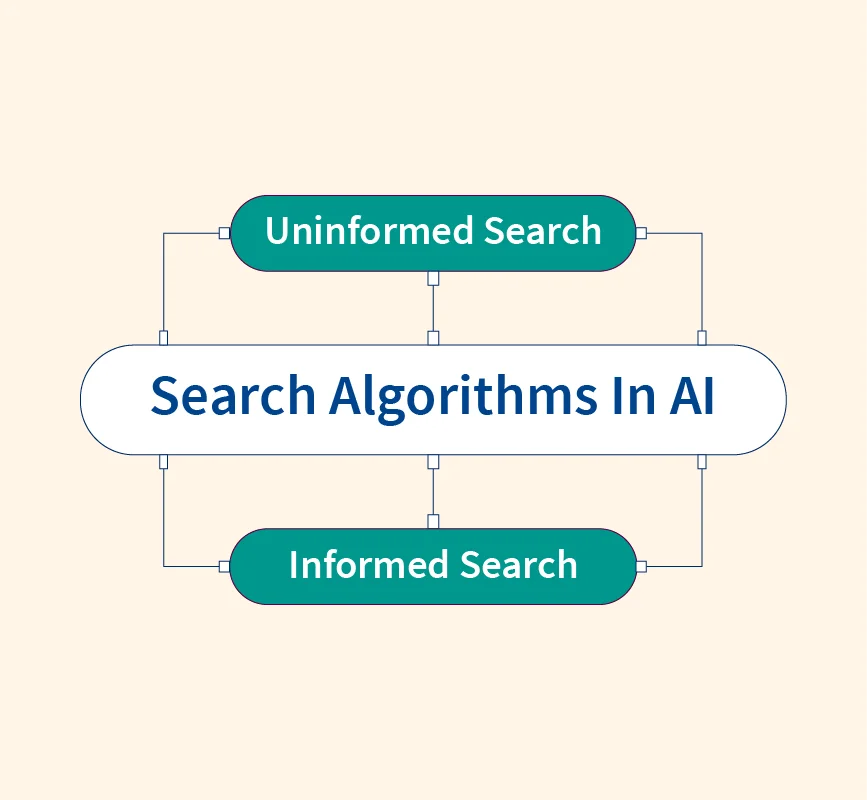Artificial Intelligence (AI) refers to the development of machines and software systems capable of performing tasks that typically require human intelligence, such as learning, problem-solving, and decision-making. In the business context, AI helps companies automate processes, analyze large datasets, and improve customer interactions. AI’s growing importance in business stems from its ability to boost efficiency, reduce costs, and drive innovation, making it a key tool for gaining a competitive edge in the modern marketplace.
AI has evolved from a theoretical concept into a practical tool that influences various industries. With advances in machine learning, natural language processing (NLP), and deep learning, AI systems are now used to optimize operations, improve decision-making, and provide personalized customer experiences. From chatbots handling customer queries to predictive models forecasting trends, AI is reshaping how businesses operate, enabling real-time insights and automated solutions that were once thought impossible. This evolution has made AI an indispensable part of business strategy and digital transformation efforts across sectors.
What is Artificial Intelligence in Business?
Artificial Intelligence (AI) in business refers to the application of intelligent systems to automate tasks, analyze data, enhance decision-making, and improve operational efficiency. In this context, AI-driven technologies streamline business operations by reducing the need for manual work and providing insights that support strategic decision-making. From customer service chatbots to predictive analytics in supply chains, AI offers tailored solutions for challenges specific to business environments.
While general AI covers a broad spectrum of areas, including robotics and cognitive computing, business-specific AI focuses on practical tools designed to solve industry-specific problems. In businesses, AI is applied to optimize processes, enhance productivity, and improve customer experience through machine learning models, data analytics, and automated processes. This distinction lies in the scalability and practical impact of AI applications within a business framework, where return on investment (ROI) and operational efficiency are critical factors.
Key Components of AI in Business
Machine Learning (ML)
ML algorithms enable computers to learn from historical data and make predictions without being explicitly programmed. In business, ML models are used for tasks like fraud detection, customer segmentation, and predictive maintenance. For example, e-commerce platforms leverage ML for personalized product recommendations, improving customer engagement.
Natural Language Processing (NLP)
NLP allows machines to understand and interact with human language, powering chatbots and virtual assistants in customer service. NLP-based tools can also analyze customer sentiment from social media, helping companies understand brand perception. Many businesses now rely on NLP for automating tasks like email filtering and sentiment analysis.
Deep Learning
Deep learning models, inspired by the structure of the human brain, are used for complex problem-solving such as image recognition and speech processing. These models improve business operations in areas like autonomous vehicles and medical diagnostics. In finance, deep learning is applied to detect patterns in large datasets for investment predictions.
Robotic Process Automation (RPA)
RPA automates repetitive manual tasks such as data entry, invoice processing, and report generation. By reducing the burden of these tasks, businesses can focus on higher-value activities. RPA improves operational efficiency by minimizing human error and speeding up business processes.
Computer Vision
Computer vision technology allows machines to analyze visual information from images or videos. In retail, it enables automated checkout systems and inventory tracking. In manufacturing, computer vision helps with quality control by identifying defects in real time.
AI Use Cases in Business
AI has found diverse applications across industries, helping businesses improve efficiency, automate processes, and enhance customer experiences. Below are key areas where AI is transforming business operations.
1. Customer Service
AI-driven chatbots and virtual assistants are reshaping customer support by providing 24/7 availability and instant responses. Chatbots handle routine inquiries like order status or FAQs, allowing human agents to focus on complex tasks. Platforms like Zendesk and IBM Watson integrate AI-powered help desks, offering personalized assistance and improving customer satisfaction. Virtual assistants like Siri and Alexa enhance user experience by enabling voice-based interactions.
2. Marketing and Sales
In marketing, AI powers personalization, targeting, and insights. E-commerce platforms like Amazon use recommendation engines that analyze customer behavior to suggest relevant products. AI tools enable companies to optimize ad campaigns by predicting customer preferences and segmenting audiences. Predictive analytics helps identify potential leads, increasing conversion rates and driving revenue growth.
3. Supply Chain and Logistics
AI transforms supply chains through predictive analytics and automation. Businesses use AI to forecast demand, optimize inventory management, and streamline delivery routes. Companies like UPS and FedEx leverage AI tools to enhance logistics, reducing costs and ensuring timely deliveries. AI-powered warehouse robots also assist in stock management, improving operational efficiency.
4. Human Resources
AI tools automate resume screening and enhance recruitment processes by shortlisting the best candidates. Platforms like HireVue use AI to assess video interviews, scoring candidates based on speech patterns and body language. AI-powered tools also drive employee retention strategies, predicting potential attrition and recommending interventions. Additionally, AI supports automated performance reviews, ensuring fair assessments and reducing biases.
5. Cybersecurity
In cybersecurity, AI is essential for detecting threats and anomalies in real time. AI-powered systems analyze network behavior to identify unusual activities, preventing potential breaches. Fraud detection models in banks monitor transactions and flag suspicious activities. Tools like Darktrace use AI to detect cyberattacks early, providing businesses with proactive security measures.
6. Finance
The finance sector benefits from AI in risk management, fraud detection, and trading. AI systems assess credit risks by analyzing financial data, helping lenders make informed decisions. Automated trading platforms use AI algorithms to execute trades based on market patterns. Additionally, fraud detection models in banking systems flag unusual transactions, protecting customers from fraudulent activities. AI is also increasingly used in bookkeeping, where machine learning models automate invoice processing, expense categorization, and financial record reconciliation, reducing manual effort and improving accuracy.
7. Healthcare
In healthcare, AI supports medical diagnostics, personalized treatments, and drug discovery. AI algorithms analyze medical images to detect early signs of diseases, such as cancer, with higher accuracy. AI-powered tools help develop personalized medicine by tailoring treatments based on patient data. In drug discovery, companies like Pfizer use AI to accelerate the development of new drugs.
How AI is Transforming Different Business Functions
AI is reshaping multiple areas of business by improving operations, accelerating product development, enhancing customer experience, and facilitating data-driven decision-making. Below is an overview of how AI impacts key business functions.
Operations
AI is revolutionizing operations through process optimization, which helps companies reduce waste, streamline workflows, and improve efficiency. In manufacturing, AI-powered systems enable predictive maintenance, identifying potential equipment failures before they happen, thereby minimizing downtime. Smart factories leverage AI to automate production lines, ensuring consistent quality while reducing human errors. In the service sector, AI tools optimize resource allocation and automate back-office processes, allowing businesses to deliver services faster and more cost-effectively.
Product Development
AI plays a crucial role in innovation by transforming product design, testing, and iteration. AI-powered tools simulate product performance under various conditions, speeding up the design and testing phases. Companies like Tesla use AI to develop autonomous vehicle features by running millions of simulations. Additionally, AI helps optimize product offerings by analyzing customer feedback and usage data, ensuring that the final product aligns with market needs. AI-driven platforms also facilitate rapid prototyping, reducing the time-to-market for new products.
Customer Experience
AI enhances customer experience by enabling hyper-personalization and real-time engagement. Through machine learning models, companies can analyze customer behavior patterns and tailor products, services, and recommendations to individual preferences. Streaming platforms like Netflix use AI to suggest content based on viewing history, improving user satisfaction. AI-powered chatbots and virtual assistants enable real-time interactions with customers, providing quick resolutions to queries. Businesses also use AI to predict customer needs, creating proactive engagement strategies that increase loyalty.
Data Analysis and Decision Making
AI empowers businesses to analyze vast datasets, uncover trends, and support strategic decision-making. Traditional data analysis methods are often time-consuming, but AI automates these processes, delivering insights faster and with higher accuracy. Predictive analytics tools help companies forecast future trends, while AI-driven dashboards provide real-time metrics to monitor business performance. In finance, AI assists in risk assessment by evaluating market patterns. AI-based insights also support executives in making informed strategic decisions, aligning business operations with market demands.
AI in Business: Case Studies
Amazon
Amazon leverages AI to enhance personalization, manage inventory, and optimize logistics. Its recommendation engine uses machine learning algorithms to analyze customer behavior, suggesting relevant products that improve customer satisfaction and drive sales. In inventory management, AI forecasts demand trends, ensuring optimal stock levels and minimizing delivery delays. AI-powered logistics tools enable Amazon to optimize delivery routes for faster, more cost-effective deliveries, contributing to its success in offering same-day or next-day delivery services.
Tesla
Tesla integrates AI into its autonomous driving systems and manufacturing processes. AI plays a critical role in Tesla’s Autopilot feature, analyzing real-time data from sensors to make driving decisions. The AI continuously learns from driver behavior and road conditions, refining its performance over time. Tesla also uses AI-powered robots and predictive maintenance systems in its factories, ensuring smooth, efficient production lines while reducing operational costs.
Google’s business is heavily driven by AI technologies, including advertising platforms, search algorithms, and machine learning initiatives. AI helps optimize Google Ads, ensuring precise targeting and personalized ad recommendations. The search algorithm, powered by machine learning, provides relevant search results based on user intent. Google also invests in numerous machine learning projects, including Google Translate and Google Photos, enhancing user experiences through smarter services.
Netflix
Netflix relies on AI to power its content recommendation engine and enhance personalization. By analyzing user preferences, viewing history, and behavior patterns, Netflix’s AI suggests shows and movies tailored to individual users. This personalization boosts engagement and improves user retention. Netflix also uses AI to optimize streaming quality by adjusting video resolution based on user bandwidth, providing seamless viewing experiences across devices.
Conclusion
Artificial Intelligence (AI) continues to play a growing role in transforming businesses across industries by driving efficiency, improving customer experiences, and enabling data-driven decision-making. From personalized recommendations to autonomous systems, AI empowers companies to innovate and remain agile.
In today’s competitive environment, businesses that embrace AI gain a strategic advantage by optimizing operations and anticipating market trends. As AI technologies advance, adopting them is no longer optional but essential for staying relevant in the digital economy. Readers are encouraged to explore AI adoption in their own businesses to unlock new opportunities and thrive in this rapidly evolving landscape.
References:


